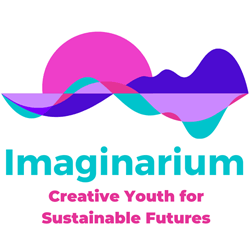THE PROJECT
Imagination and creativity : these resilience building skills are important to the success of young people. We want to make sure they have the best environment to develop the creativity needed to inspire and build their personal, professional and (sustainable) community’s future.
The goal of Imaginarium project is to co-create new activity tools, using expertise of yoth workers and experience of partner organisations in Design Thinking, Futures Thinking and sustainability.
This European project, co-funded by the European Erasmus + programme, is led by an innovative partnership bringing expertise from university, social enterprise, cooperative and business from Luxembourg (Art Square Lab), France (Co-Actions), Ireland (M-Powered) and Finland (University of Turku)
···
THE PARTNERS

ART SQUARE LAB
Luxembourg
Art Square Lab is a service innovation agency based in Luxembourg and combines research, creativity and technology to design services that people use. The agency is focused on Human-centred design methodologies like Design Thinking.

M-Powered Projects
Ireland
M-Powered supports staff of educational institutes and NGOs to help them to increase efficiency, creative problem-solving, job satisfaction, and balance in their work and personal lives. Its aim is to help people to design and run meaningful projects, collaborate and manage conflicts in teams, identify risks and implement positive change.

Co-actions
France
Co-actions is a CAE, Cooperative of Activity and Employment, located in the Southwest of France, in the Nouvelle-Aquitaine region. The cooperative gathers project leaders and young entrepreneurs who want to create their own job in a collective framework in social and solidarity economy. This model is a source of capacity building for young people and for their potential of creativity and innovation.

University of Turku
Finland
University of Turku (UTU) is a one of the major universities in Finland whose expertise of its 7 faculties ranges from humanities to natural sciences and economics. Brahea Centre at the University of Turku is an independent unit specialized in developing and realizing local entrepreneurship ecosystems in developing regions. Approximately a quarter of its personnel specialize in entrepreneurship, innovation, and university-business collaboration activities, with further staff members specializing particularly in institutional development and modernization of higher education.
···
OBJECTIVES
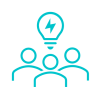
Bring the creativity in non-formal educational system thanks to the Design Thinking and Futures Thinking and creative problem- solving methodologies
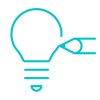
Supporting students and educators in developing new sustainable ideas for positive futures; educators with materials useful for teaching creativity and sustainability, and a tool to measure creativity of young people
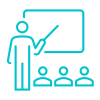
Professional development of staff and stakeholders: intensive training about the use of creativity in education of young people
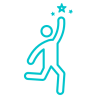
Encourage young people to implement their ideas: inform them about the funding possibilities for Solidarity Projects (Erasmus Plus EU Program) and provide them with basic project management skills fostering social entrepreneurship and employment.
···
OUTPUTS
Evidence-gathering Report on Challenges for futures
Toolkit for Creativity and Design Thinking
For innovative education, with materials like cards, canvas, and board game useful for youth workers and educators. How might we implement creative process, implement teamwork, develop sustainable solutions that might be introduced into local realities of young people? The materials and tools produced will be implemented and tested directly during the project, through Thinkatons (weekend hands-on events implemented in all partner countries).
Creativity Assessment Tool
Developed with support of the researchers from University of Luxembourg answering the persistent question: how might we measure creativity? how might we prove that young people learned to be more creative?
Guide Futures Thinking in Youth Work
Guide for youth workers explaining the methodology of creative work with young people using the tools of FT: trend analysis, visioning, scenario development, prototyping. The Guide presents the answer to the question: how might we create a structured habit in young people to build resilient futures, contrary to black scenarios offered by media? How might we enable them thinking critically but also offer creative solutions?
